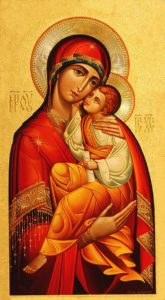“In Christ, you and I have become people drenched in the Holy Spirit; we have become living testaments to the final dwelling together of God and humanity that is to come.” – Casey Page Culbreth
The word is incarnation. It’s big giant church word that is often used with very little explanation. I don’t use the word a lot in casual conversation. I have heard it used in sermons and I’m always interested if hearers understand what it means? But understanding it shouldn’t be left to high church clerics or the trained seminarian. Actually, anything like that sorta defeats the purpose entirely.
When I was a kid, I was a big listener to Christian contemporary music. Actually, my house had a rule that we wouldn’t play secular music – unless it was a musical, classical, or Christmas music. When I got older, I uncovered different styles and, surprisingly, I ended up finding Jesus in country, rap, hip-hop, and the awesome grooves of the 80’s (still love me an 80’s soundtrack). But today, I find myself going back to those Christian artists and hearing their songs all over again.
One of my favorites was Michael English – man I wanted to sing that guy! I had the repeat button pushed on his first album and particularly the track In Christ Alone. But there was another song on that album written by Mark Lowry, that was equally mesmerizing. We now sing Mary, Did You Know, as a Christmas song and everyone from Pentatonix, Ceelo Green and Dolly Parton have sung it. I hear it in churches, Target, shopping malls. I even heard it playing while I pumped gas outside a Shell station.
And every time I hear it, I find myself filling with wonder as the song affects my imagination. Oh, there are purists (or maybe it’s elitists?) who love to be critical of this song and those like it. They love to theologize and show how smart they are and rip into the sentimental lyrics. They point to scriptures and the moment the angel Gabriel spoke to Mary. “Of course she knew, the angel told her” they spout. And technically, they may be right, but they could also be totally wrong.

Sure, Mary was told “all these things” by the Angel, but that didn’t mean wonder didn’t creep up in her. I mean it happens to me all the time. I am a trained theologian (a title I’m not always excited about) and I know a lot of stuff about God and our faith story. But that doesn’t mean I don’t doubt. It doesn’t mean I don’t forget God – to thank Him for the day, for my food, for my breath. It doesn’t mean that I don’t forget who God says I am. I’m told I’m a beloved son who has the Holy Spirit living within me, and yet I still choose to live like someone who still craves the gutter.
Truth is, we all forget. We all struggle with the immensity of life. We look at our loved ones and we worry and we stress and we doubt. We know promises spoken over us, to us, but that doesn’t mean when troubles rise we hold onto those same promises. And I think Mary was a lot like us and had similar struggles and doubts. I think when she saw that newborn infant, a being that a messenger from God told her was the Son of God and Messiah of the world, she had to wonder “how this could be true?” They were in a cave; surrounded by animals and their stench. This was the maternity ward for God?
She had to wonder when Shepherds showed up to “see this thing.” She had to wonder when pagan astrologers showed up and offered expensive gifts. She had to wonder when she was roused from sleep and told they had to flee to Egypt. She had to wonder when her son left home and chose fishermen to be his companions. She had to wonder when he ate with tax collectors and notorious sinners. She had to wonder when the religious leaders of her people spoke in hostile tones toward him. She had to wonder when crowds screamed, when her priests schemed, and when Rome nailed her son to a wooden cross.
Sure Mary had a visit from an angel who told her what was about to happen, but that doesn’t mean Mary had a clue. It doesn’t mean that she understood that she was the God-bearer (theotokos in the Greek). It doesn’t mean that she knew fully that God’s very self had moved into her womb and then into her house. It didn’t mean that she understood, anymore than I do sometimes, that in her son was the fullness of God in bodily form (as Paul would later say to the church at Colossae).
That’s what incarnation means. God moved into our neighborhood. Took on flesh. Dwelt with God’s own creation. The incarnation tells us that in Jesus, God has connected himself to creation in a way unthinkable. It tells us that God knows us not just as creator but as one who suffers and struggles like us. And if that’s not enough, it means that in the Holy Spirit, the same God incarnates into you and me – joining with us. The Spirit of God drenches us, you and me, with all our junk and brokenness and possibility with all of the goodness, holiness, purity and strength of Jesus. And it means we become God-bearers too (fellow theotokos’).
I’m sure there were times Mary was certain, just as I’m sure there were times when she doubted, worried and stressed. I’m sure because it happens to me often, and I have the same Jesus living in me. I wonder if today, in this advent season, I might just take a minute and get drenched in the profound life-changing gift of the incarnation. Who knows what could happen next?
Jesus, thank you for coming and moving into our neighborhood. Thank you for living in me. Help me when I doubt and question. Help me when I lose track and get distracted by all the questions. Help me when I forget your humble birth and instead act like I have all the answers. Would you make me aware of your drenching Spirit today. Let me find the awe again of you nearness. In Jesus name, Amen.
